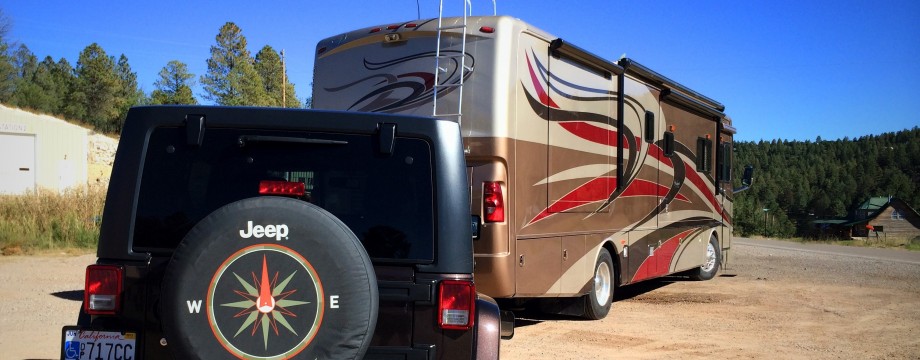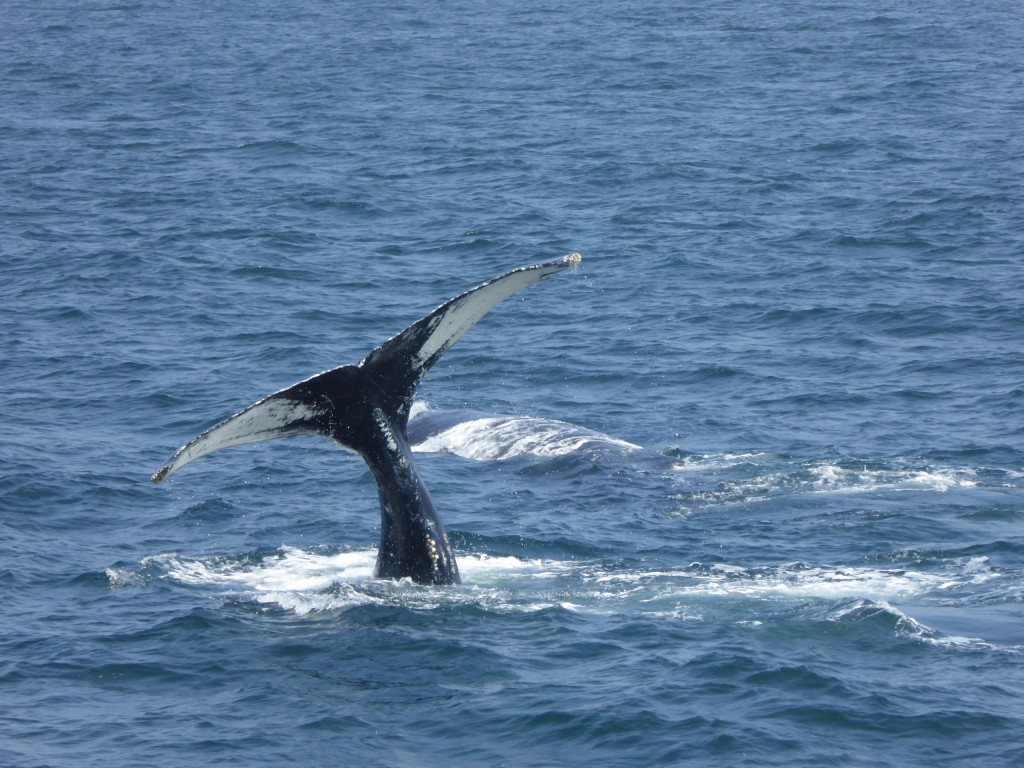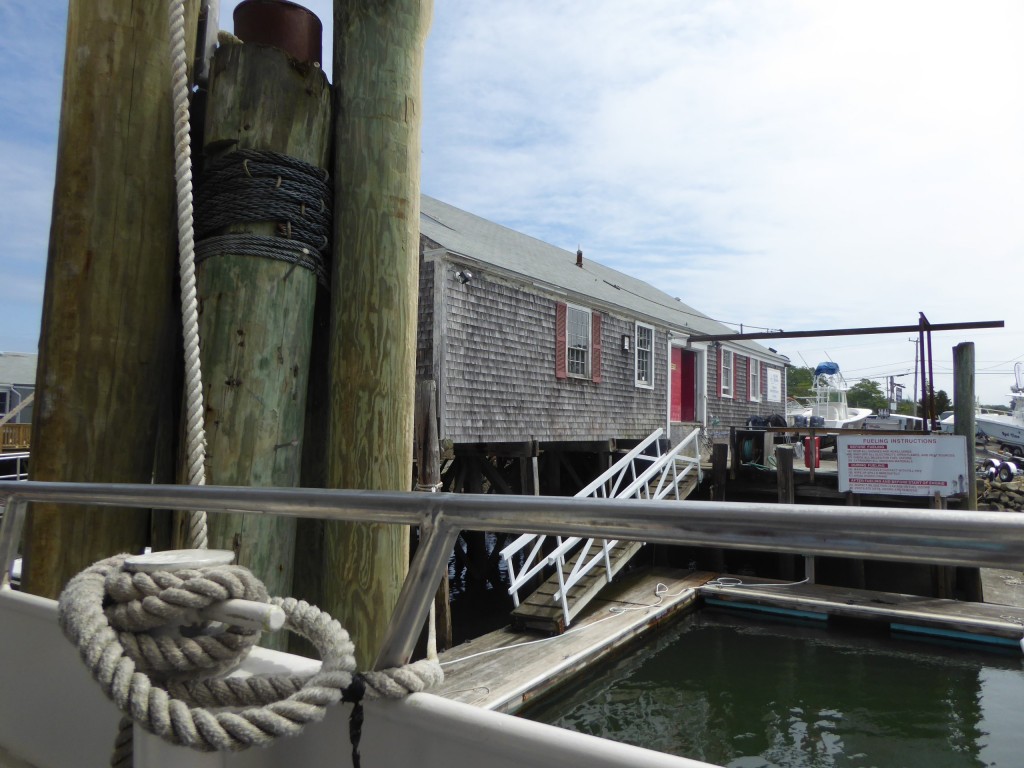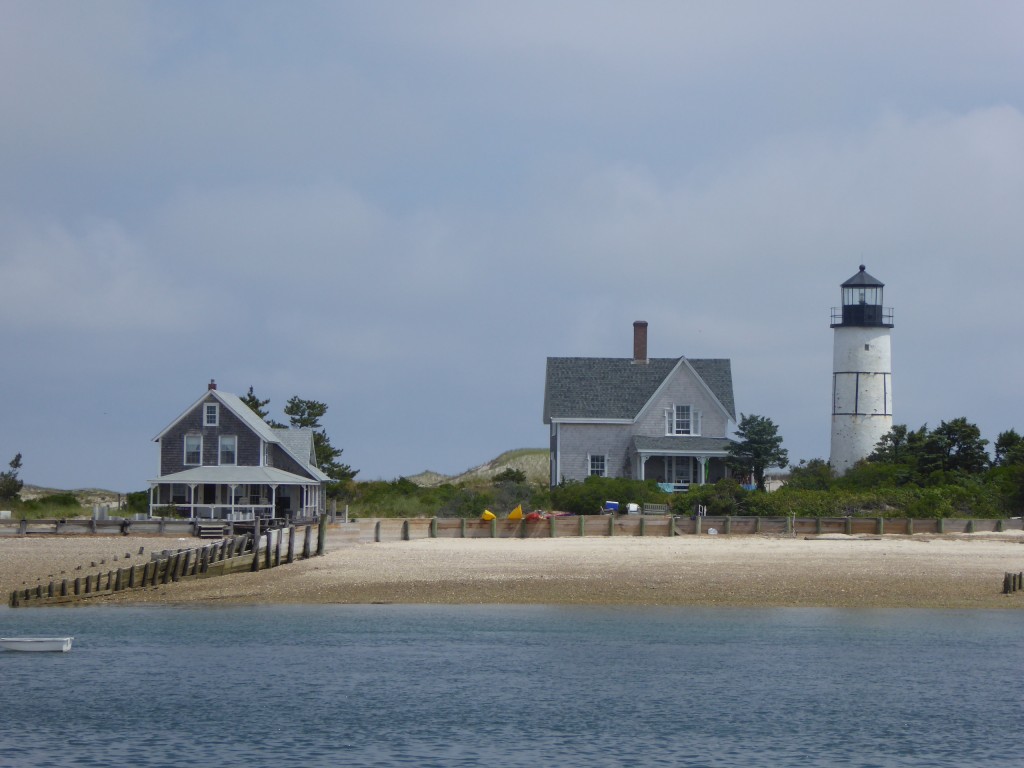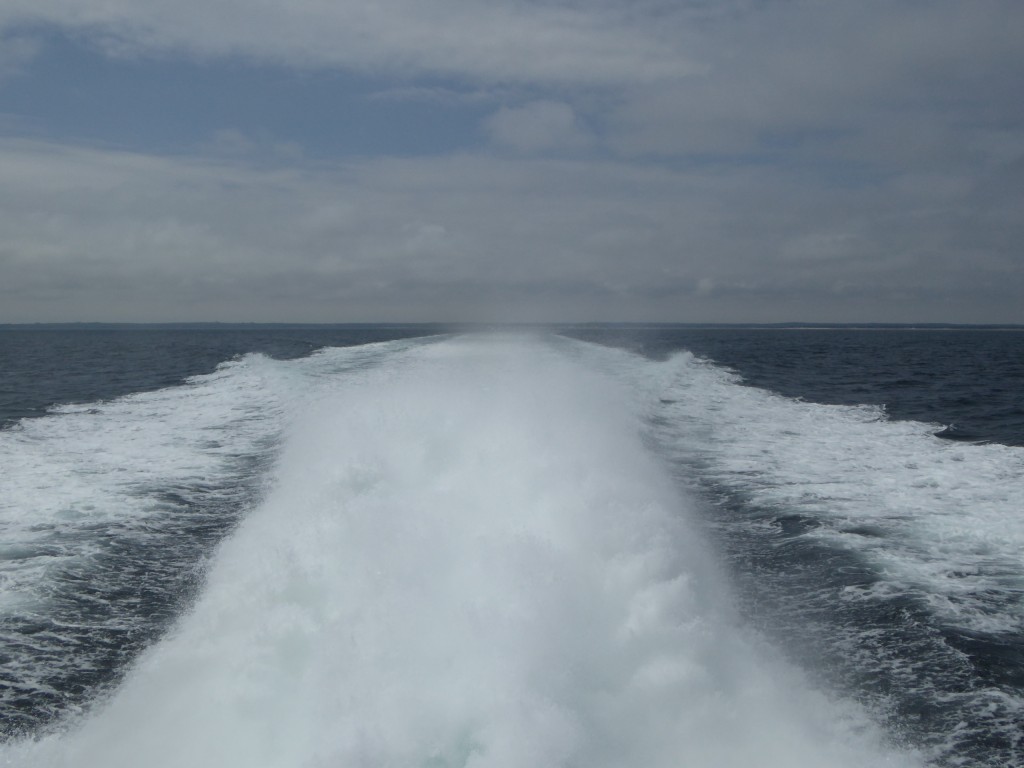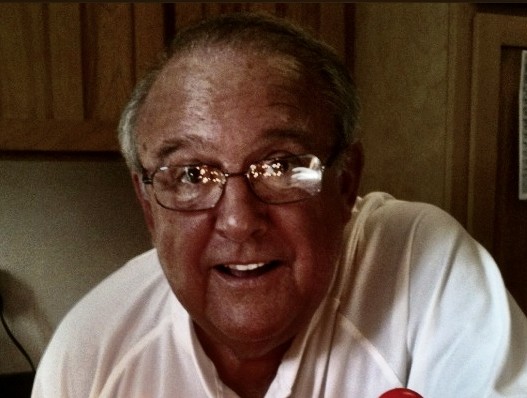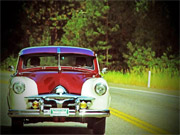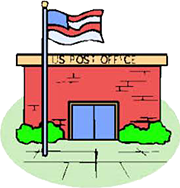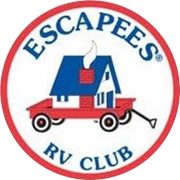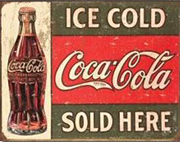JULY 11, 2015
WHALES NEAR CAPE COD. About a 40 mile boat ride from Bardstown Harbor on Cape Cod, Stellwagen Bank is the seasonal home to Humpback, Finback and Menke Whales. These animals are baleen whales…they have no teeth! Instead, they have baleen plates made up of keratin, the same material that makes up our hair and fingernails. The plates hang from the whales’ upper jaws and allow the animals to filter or strain their prey …usually plankton and small fish, from the seawater. You learned something just now, didn’t you?
ABOUT HUMPBACKS. In the Cape area, Humpback whales are the most frequently encountered. They “winter” in the Caribbean, an area that serves as their breeding and calving ground. The calves weigh a ton at birth and measure about 15 feet in length! Just by nursing on their mothers’ milk, they gain as much as 100 pounds a day!
AND A BIT MORE INFO. Humpbacks are known for a variety of behaviors, some of which appear to be playful. Rolling, flipper-slapping and breaching are some of these behaviors. Watching these magnificent animals frolic in their natural state at sea, rather than wallowing in captivity, made me happy. NOTE: See my rant about Orcas in captivity at Sea World. It’s at the top of the “Reflections” page, accessible from the sidebar to this post. Please read it. No, I’m not a member of PETA. But I am very opposed to keeping whales in captivity for no reason other than to entertain humans!
OUR BOAT TRIP. Along with about 100 rambunctious school-age children and armed with our cameras, snacks and sunglasses, Florence and I boarded the creatively named “MV Whale Watcher” just before noon, ready to begin our 4 hour adventure. The vessel is 130 feet long and is powered by five water-jets. The engine provides enough thrust to produce a top speed of 43 mph. And since there are no propellers, the boat doesn’t present a risk of harm to the humpbacks. That’s fine, but what about the risk to us, being so close to 40 ton adult whales? That’s right…40 tons! What if a whale resented our presence and charged the boat? Hmmm……
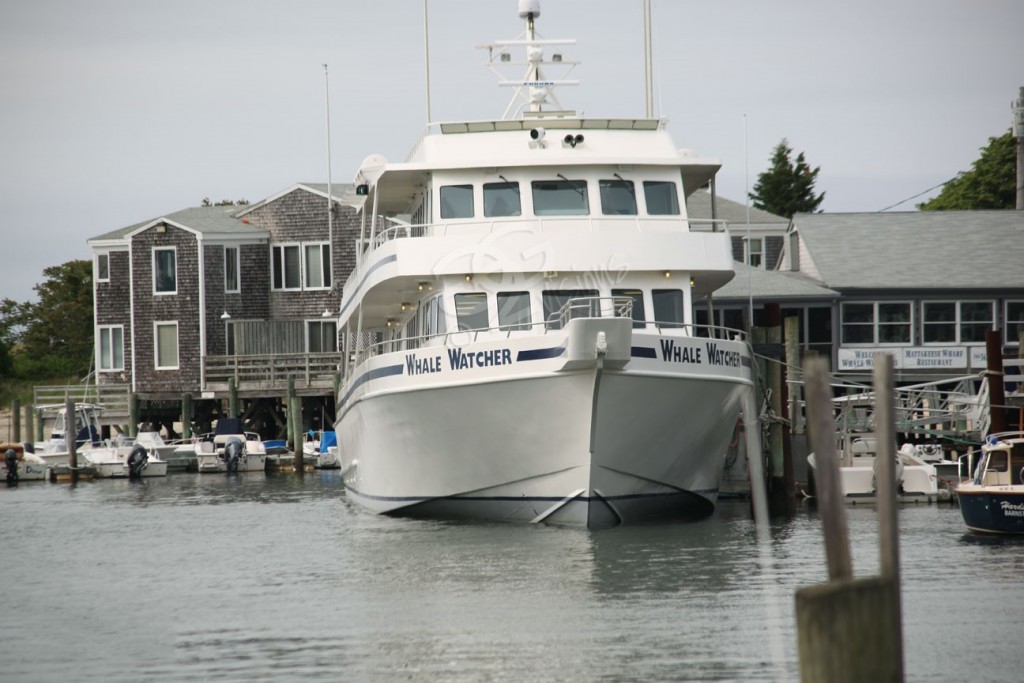
It didn’t take us long to get to the whales’ feeding grounds. This boat has a top speed of almost 45 miles per hour!
A NATURALIST WAS ABOARD. A professional marine naturalist was aboard to provide engaging, entertaining and educational narrative. She’s been “in the whale business” for almost 30 years and her commentary really “made the trip.” Among other educational tidbits she provided, we learned that coloration on Humbacks’ tails is animal-specific. Like human fingerprints, no two are exactly alike. This allows whale experts, even from a distance, to identify and track individual whales. So our “guide” was able to tell us information about certain whales we saw yesterday…such as when they were born, what are their unique behaviors like breaching and slapping the water. And she’d named them. She’s been following them back and forth from the Caribbean and studying them for decades!
LOCATING WHALES. And here’s something I’ll bet you didn’t know ’til now. The next time you’re on a boat at sea and looking for whales, scan the water for a bright green, almost turquoise patch. It’s made by a whale approaching the surface and blowing a cloud of bubbles below the surface. So when you spot a green slick on the water, keep your eyes peeled, as within just a moment you’re going to see a whale “bubble feeding” on the surface of the water. Or sometimes slapping its tail. Or breaching…jumping entirely out of the water. We had one really “feel good” view of a whale all the way out of the water! Look at this photo!
AND THIS IS WORTH A CHUCKLE. Lots of sea birds were evident yesterday at the Stellwagen Bank where the whales were feeding. I suppose they were doing whatever sea birds regularly do, but there was another reason for their presence yesterday. They were stealing food. When the whales surfaced, jaws spread open so the plankton and small fish would strain down their throats, some of the birds would quick-like fly right into the whales’ mouths, trying to steal food. The birds I saw doing this all managed to escape, but I’ll bet some don’t! Watching nature “at work” was a real experience.
WATCH MY 30 SECOND VIDEO CLIP OF THE WHALES.

I’ll continue my story next time.


